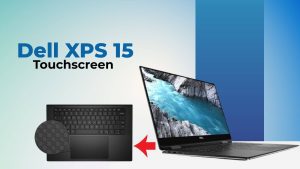Choosing the best laptop for hacking in 2025 means finding one that strikes the perfect balance between processing power, Linux compatibility, portability, and battery life. You can’t afford system lags or incompatibility issues during critical operations like network mapping, brute-force attacks, or security audits.
Here are the top Linux-compatible hacking laptops in 2025, packed with all the technical details and real-world usability feedback. Each model here has been selected for its hardware stability with Kali Linux and other hacking distros, its ability to handle virtual environments smoothly, and its practicality for hackers who travel or work in high-pressure environments.
Why You Need a Specialized Laptop for Hacking
Not every high-end laptop is designed with the needs of hackers in mind. While performance is a given, the real differentiator lies in how well a laptop handles specialized tasks and environments required in ethical hacking.
One of the primary reasons to go for a hacking-focused laptop is Linux compatibility. Most ethical hacking tools, like Metasploit, Wireshark, Nmap, Burp Suite, and Aircrack-ng, are designed to work best or only on Linux. A laptop that supports dual-booting or runs Linux natively ensures that your workflow isn’t interrupted by driver or kernel issues. Also, seamless support for Wi-Fi packet injection, monitor mode, and USB-based adapters is essential.
Top Laptops with the Best Battery Life in 2025
Hacking operations such as running multiple virtual machines (VMs), performing intensive GPU-based password attacks, or launching network simulations demand serious RAM, CPU, and GPU power. And since many penetration testers work on the go, long battery life, lightweight design, and a durable chassis are also vital.
Having a laptop with proper I/O ports, such as multiple USB-A and USB-C ports, an Ethernet port (or adapter support), and external Wi-Fi adapter compatibility, can save you from logistical nightmares during field tests.
List of Best Laptops for Hacking
1. Dell XPS 15 (2025 Model) – Hacker’s Premium Companion
The Dell XPS 15 has always been a favorite in the developer and ethical hacking communities. The 2025 version takes it further with top-tier internals and refined Linux compatibility, making it one of the most powerful and user-friendly machines for professional cybersecurity work.
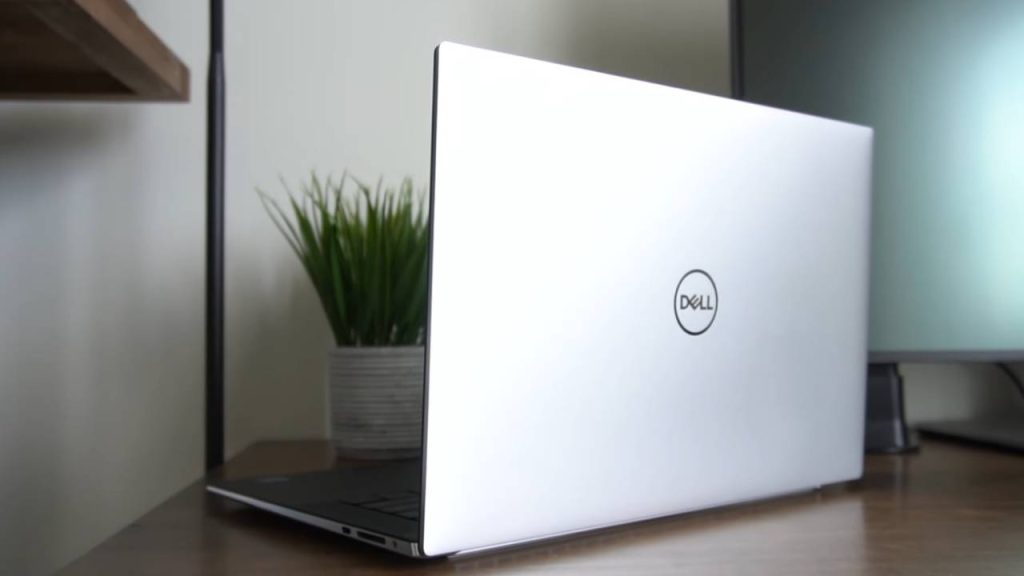
- Processor: The latest 13th Gen Intel Core i9 or i7 chips deliver outstanding performance for multitasking, VM execution, and running resource-heavy tools like Burp Suite, Hydra, or Nessus without any stuttering.
- RAM: Configurations go up to 64GB DDR5, which is ideal for running multiple Linux distros in VirtualBox or VMware. Even for large-scale lab simulations, this amount of RAM ensures smooth operation.
- GPU: Equipped with NVIDIA RTX 4050, it supports GPU-accelerated cracking tools such as Hashcat. This is essential when testing password security and brute-force protection.
- Display: Its 15.6” 4K OLED or FHD+ screen offers ample real estate for multitasking across multiple terminal windows, web interfaces, and live log feeds.
- Weight: Weighing just around 4 lbs, it remains portable enough for travel or field assessments.
- Battery Life: Up to 10 hours on standard usage — slightly lower with heavy VM use, but still reliable.
- Linux Compatibility: Supports Kali Linux, Ubuntu, and Debian out of the box. Most tools and drivers install seamlessly, and Wi-Fi adapters work without the need for additional firmware hacks.
Verdict: If a professional hacker or penetration tester looking for a premium laptop that does it all — from virtualization to GPU cracking — the Dell XPS 15 remains a top-tier contender for the best laptop for hacking in 2025.
2. Lenovo ThinkPad X1 Carbon Gen 12 – Reliable, Portable, and Built for Linux
ThinkPads are renowned for their rock-solid build quality and exceptional Linux support, and the X1 Carbon Gen 12 continues this legacy in 2025. Used by developers, system admins, and cybersecurity professionals, this laptop is both lightweight and loaded with enterprise-grade features.
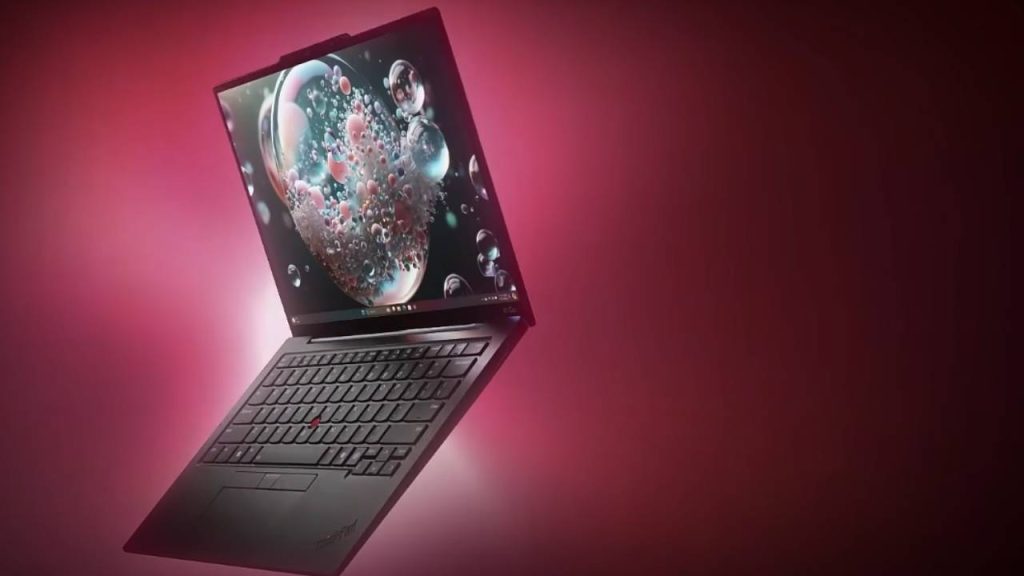
- Processor: The Intel vPro i7/i9 processors ensure enterprise-level security and performance. These CPUs are optimized for virtualization, parallel processing, and workload management — important for a hacker’s toolkit.
- RAM: Comes with 16GB to 32GB LPDDR5, which is soldered but fast. This is ample for most ethical hacking activities unless you plan to run heavy simulations.
- Storage: With 512GB to 2TB NVMe SSD options, booting into Kali, running containers, and saving captures or payloads becomes lightning-fast.
- Security Features: Includes TPM 2.0, fingerprint reader, and IR camera – which can be valuable if you’re working on sensitive pentesting reports or protected environments.
- Weight: Just 2.4 lbs, making it ideal for mobile security consultants and red teamers.
- Battery: Offers up to 14 hours — which is impressive even when running Kali with moderate load.
- Linux Compatibility: ThinkPads have long been the benchmark for Linux friendliness. Every key feature – from Wi-Fi to touchpad gestures – works perfectly out of the box.
Verdict: The X1 Carbon is ideal for traveling cybersecurity professionals who need a light yet powerful Linux-compatible machine. Its combination of battery life, durability, and security features makes it a strong contender as the best laptop for hacking in business environments.
3. Framework Laptop 16 (2025) – Modular Design Meets Open-Source Ethics
The Framework Laptop 16 is a dream come true for open-source advocates and hardware tinkerers. It’s a fully modular laptop designed with repairability and transparency in mind, making it a great fit for ethical hackers who want full control over their machine.
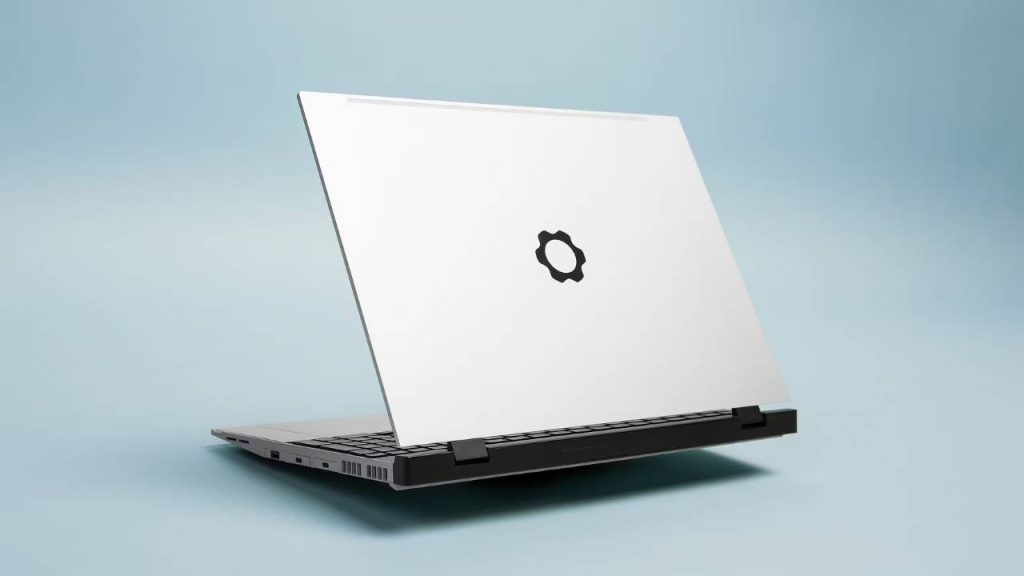
- Processor: Offers AMD Ryzen 7 7840HS and Intel Core Ultra options, both ideal for VM deployment and multitasking.
- GPU: You can add or remove the Radeon RX 7700S discrete GPU module depending on your cracking or graphics needs.
- RAM & Storage: Supports up to 64GB DDR5 RAM and 2TB Gen4 SSD, providing vast resources for lab simulations, file analysis, and custom Linux builds.
- Customizability: With swappable expansion cards, you can switch USB-A, USB-C, HDMI, Ethernet, or even storage ports based on your hacking tools.
- Linux Compatibility: Comes with community-verified support for Ubuntu, Fedora, Debian, and Kali Linux. Framework provides drivers and firmware updates for smooth compatibility.
- Weight: Roughly 4.4 lbs, heavier than others but worth it for the customization and power.
- Battery Life: Lasts 8–10 hours depending on GPU usage and tool load.
Verdict: For ethical hackers who value transparency, modularity, and full system control, the Framework Laptop 16 is perhaps the most ethical and hacker-friendly laptop on the market today — no bloatware, no vendor lock-ins, just pure power and openness. Easily one of the best laptops for hacking in 2025 if you want a future-proof setup.
4. ASUS ROG Zephyrus G14 – Gaming Power for Penetration Testing
Originally designed for gamers, the Zephyrus G14 is now a favorite among ethical hackers and security researchers who need raw power in a sleek form factor. It’s especially great for GPU-intensive tasks, such as brute-force attacks and hash decryption.
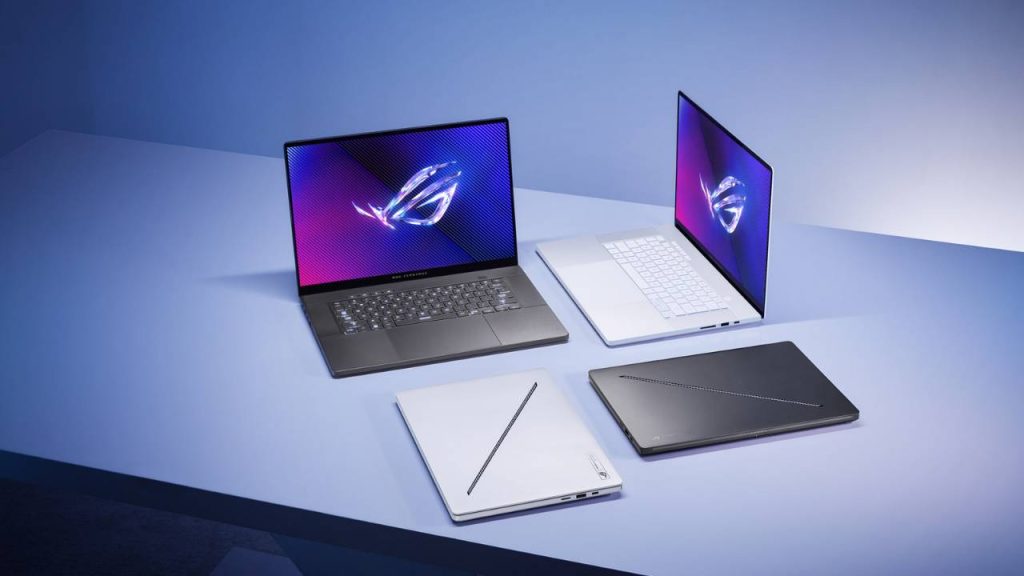
- Processor: Features AMD Ryzen 9 8945HS, a beast for high-speed computation, script automation, and fast VM booting.
- Graphics: The RTX 4060/4070 GPUs allow for real-time GPU cracking, accelerating your password brute-force efforts dramatically.
- RAM: Comes with up to 32GB DDR5, which is more than enough to run Kali, several Docker containers, and a few full-size VMs.
- Storage: Up to 2TB NVMe SSD ensures instant access and rapid I/O performance during network scans or system emulation.
- Display: The 14” QHD 165Hz screen is color-accurate and smooth, great for switching between terminals, Burp Suite windows, and browser tabs.
- Weight: Weighing 3.6 lbs, it’s one of the most powerful yet portable hacking machines available.
- Battery: Lasts up to 9 hours, although GPU tasks may reduce that.
- Linux Compatibility: Fully functional with Arch, Kali, and Ubuntu with minor initial tweaks for GPU drivers.
Verdict: Looking for maximum performance in a relatively compact package, the Zephyrus G14 delivers immense power for password cracking, OSINT work, and virtualized labs. Without a doubt, it’s one of the best laptops for hacking in GPU-focused workflows.
5. Apple MacBook Pro M3 (16-inch) – For Dual-Environment Professionals
While not traditionally known for hacking, the M3 MacBook Pro is increasingly being used by ethical hackers who rely on macOS for development and use Linux in parallel through virtual machines or containers.
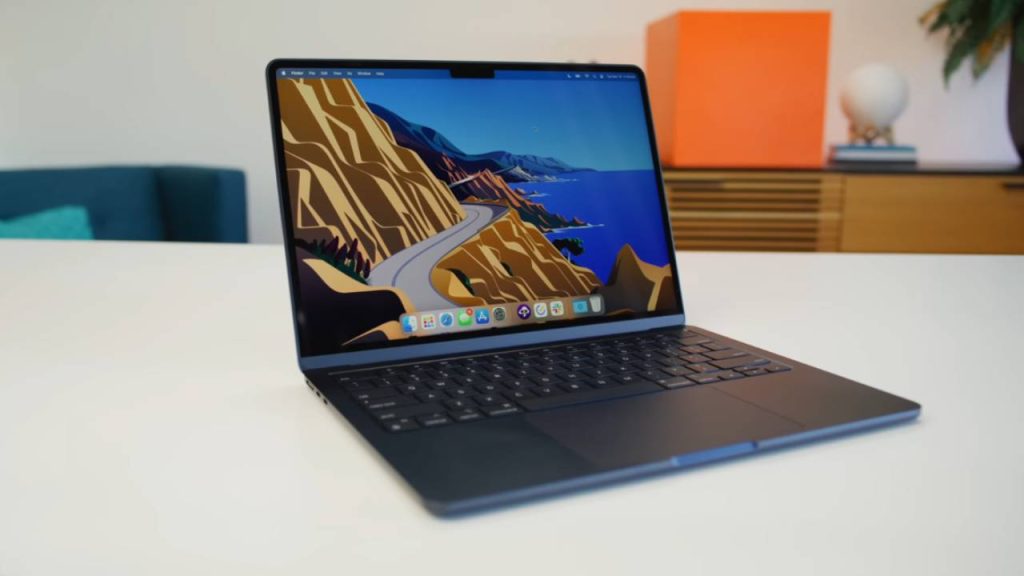
- Processor: The Apple M3 Pro and Max chips bring ultra-efficient ARM performance with powerful on-chip GPUs for compiling code and running containers.
- RAM: Up to 96GB Unified Memory, ideal for advanced multitasking or heavy virtualization.
- Display: A stunning 16.2” Liquid Retina XDR makes reading code, logs, and packet dumps easier on the eyes.
- Battery Life: Up to 21 hours — easily the best on this list.
- Weight: Heavier at 4.7 lbs, but solid build and performance compensate.
- Linux Compatibility: Native dual-boot with Linux is limited, but Linux runs well in UTM, Parallels Desktop, or Docker containers. Most tools work smoothly in a virtualized environment with the M3’s raw power.
- Security: Features secure boot, encrypted SSD, and excellent app sandboxing.
Verdict: While not ideal for Linux-first hackers, the M3 MacBook Pro is still a powerful option for developers and researchers who split their time between macOS and Linux. It’s not the top native Linux machine, but for hybrid users, it’s still a reliable best laptop for hacking in 2025.
Best Laptops for Students in 2025: Top Picks Under ₹50,000
Regardless of your pick, make sure your laptop supports advanced networking, handles VMs with ease, and can run Linux distros without compatibility headaches. In ethical hacking, your gear matters — and investing in the right laptop can mean the difference between a successful audit and missed vulnerabilities.
FAQs
1. What are the key specifications to look for in a hacking laptop?
To run penetration testing tools and virtual machines smoothly, your hacking laptop should have:
- At least 16GB RAM (32GB+ for VMs or password cracking)
- Quad-core or higher CPU (Intel i7/i9 or AMD Ryzen 7/9)
- Dedicated GPU (NVIDIA RTX preferred for Hashcat, John the Ripper, etc.)
- 1TB SSD (for fast boot, disk I/O, and VM storage)
- Full Linux compatibility or support for dual-boot or virtualization.
2. Which operating system is best for ethical hacking?
Most professional hackers prefer Linux – particularly Kali Linux, Parrot OS, or BlackArch – because they come pre-loaded with penetration testing tools. A laptop that supports Linux natively or can dual-boot with Windows/macOS is ideal.
3. Do I need a laptop with a GPU for hacking?
Yes, if you plan to perform password cracking or GPU-accelerated attacks using tools like Hashcat, a dedicated GPU such as an NVIDIA RTX 4050/4060 or higher is essential. For networking, OSINT, or web app testing, a GPU is optional but still helpful.
4. Can I use a gaming laptop for hacking?
Absolutely. Many gaming laptops, like the ASUS ROG Zephyrus G14 or MSI Stealth series, have high-end specs ideal for hacking. Their powerful CPU+GPU combo, fast SSDs, and large RAM make them great for multitasking and virtualization.
5. Is the MacBook Pro M3 good for ethical hacking?
Yes, the MacBook Pro M3 is excellent for hybrid users who want to run macOS + Linux in virtual environments (using Parallels, Docker, or UTM). Native Linux installation isn’t supported, so it’s less suitable for Linux-first hackers.
6. Why is Linux compatibility so important in a hacking laptop?
Most hacking tools (Metasploit, Nmap, Burp Suite, Aircrack-ng) are Linux-native. Without full Linux compatibility, your tools may not work correctly, or you may struggle with drivers for Wi-Fi cards, USB sniffers, or custom kernels.
7. Can I install Kali Linux on any laptop?
While technically possible, not all laptops support Wi-Fi injection, monitor mode, or kernel modules needed for pentesting. Laptops like Dell XPS, Lenovo ThinkPads, and Framework are known for strong Kali Linux support.
8. Is battery life important for hacking laptops?
Yes, especially if you’re working in the field or on the move. Look for laptops with 8+ hours of battery life under moderate load. Lightweight models like the ThinkPad X1 Carbon and MacBook Pro M3 excel in this area.
9. Can I hack using only virtual machines on my laptop?
Yes. Tools like VirtualBox, VMware Workstation, and KVM/QEMU allow you to run Kali or Parrot OS in VMs. Just make sure your laptop has a powerful CPU and at least 32GB RAM to avoid lag during simulations or scans.
10. What’s the best overall laptop for hacking in 2025?
The Dell XPS 15 (2025) is considered the most balanced option – offering power, portability, Linux compatibility, and GPU support. Your choice should depend on your focus:
- For full Linux use: Lenovo ThinkPad X1 Carbon, Framework Laptop 16
- For GPU-heavy cracking: ASUS ROG Zephyrus G14
- For on-the-go professionals: MacBook Pro M3 (virtualized Linux)






